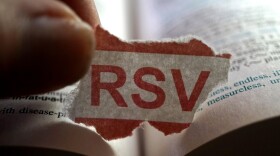About 67% of nursing home residents in the state had received a COVID-19 vaccine booster as of Nov. 21, according to the Connecticut Department of Public Health, and just over one-in-five nursing home staff who were eligible for boosters had received one.
Many of those residing and working in long-term care facilities have been eligible for booster shots since late September. At a press conference last week, Josh Geballe, the state’s chief operating officer, stated that booster clinics have been ongoing since then. The state is currently helping facilities that “take a little longer to get organized” conduct clinics on-site, he said.
Manisha Juthani, the state’s public health commissioner, said in a press conference last week that the goal is to hold booster clinics for residents and staff at all long-term care facilities by Dec. 15.
DPH is not releasing facility-level breakdowns of vaccination rates among staff and residents, said Chris Boyle, the agency’s director of communications.
About 25% of nursing homes in the state — representing 50 facilities — reported a COVID case among residents, staff or both in the week of Nov. 30, data released Thursday show. The number of facilities reporting cases has been steadily increasing over the past few weeks.
Bill White, owner of Beechwood Manor in New London, said about 90% of his residents have received their booster shot, but even so, there has been a mini-outbreak in his facility in the past 10 days.
White said he’s had six positive COVID cases – two staff members, both of whom are not vaccinated, and four residents. Among the residents, one woman got her booster shot about two months ago but is immunocompromised. Two other residents got their booster shots days before they tested positive, and the fourth wasn’t yet eligible for a booster shot.
White said he believes the outbreak would have been worse if not for what happened at Geer Village in North Canaan last month. That facility had a major outbreak where 89 residents and staff tested positive for the virus and eight residents died.
“We were doing pretty well here, but that was a come-to-Jesus moment for me. And immediately after hearing about that, I mandated that all of my employees needed to get booster shots, and we stepped up vaccinations of our residents,” White said. “I’m certain if we hadn’t picked up the pace on our boosters, we’d have another Geer here.”
Matthew Barrett, president of the Connecticut Association of Healthcare Facilities, said the breakout at Geer reinforced what people in the industry already knew: “This pandemic is far from over, and we still need to be vigilant.”
Athena Health Care had an outbreak at The Summit at Plantsville last week, where 16 residents tested positive and three died.
Tim Brown, Athena Health Care’s director of marketing, said while Athena has not thought about reopening its COVID recovery centers that were in Bridgeport and Sharon, they have been accepting some residents who have tested positive in other facilities into one of the their buildings.
“We have had a few standard transfers from other facilities but not a large amount,” he said, adding there have been no conversations yet with the state regarding a need for recovery centers.
“With so many residents vaccinated and now many of them getting booster shots, the number of people getting seriously ill is much lower than it was during previous outbreaks,” he said.
The winter presents a particular challenge for nursing homes and infection control. “Increased visitation and gathering during the holiday season can lead to more cases of COVID‐19 and other respiratory viruses,” a DPH official stated on a call to local health departments in mid-November, urging facilities to give their residents booster shots.
“Masking of visitors, being maybe a little bit more vigilant on those types of interventions in a home itself, is something a home can decide and institute for themselves,” Juthani said in an interview with the CT Mirror on Tuesday.
Boosters for the general public
In response to news of the omicron variant, the Centers for Disease Control and Prevention has recommended that all adults 18 and older should get a booster shot if it has been at least six months since they completed an mRNA vaccination series or two months since they received a Johnson and Johnson shot. So far, 27% of fully vaccinated Connecticut residents 18 and older have received a booster, along with about 54% of fully vaccinated residents 65 and older, according to data from the CDC.
Juthani said she was heartened by the rate of booster administration so far and optimistic that uptake would increase among the general population after the federal government revised its recommendations to be more forceful.
“CDC has now unequivocally said everybody 18 and older should get a booster,” she said. “The simplification of the messaging from CDC as to who can get a booster has made it much clearer to people that they were eligible and they can go out and get it. I think a lot of people genuinely didn’t want to step in line in front of somebody else.”
Anyone looking to sign up for booster shots in Connecticut can do so here.
Little is known about the omicron variant at this time regarding its transmissibility, lethality or ability to evade immunity acquired through vaccination. Preliminary evidence suggests that omicron poses a higher risk of reinfection for those who have previously had COVID-19 than other variants do, the World Health Organization stated. More data on the variant are expected in roughly two weeks.
The WHO has labeled omicron a variant of concern. It carries about 50 mutations, The New York Times reported. The first recorded case of omicron in the United States was detected on Wednesday in California, and another case was detected in Minnesota after the individual in question travelled to New York. No cases have been detected in Connecticut so far.
The state’s daily positivity rate hit 6.5% on Thursday, bringing the seven-day average to 5%.




